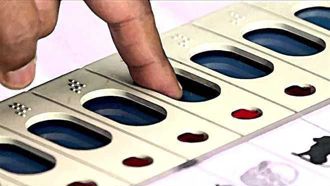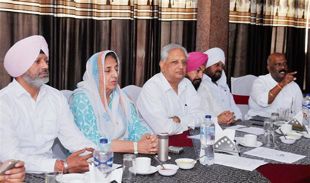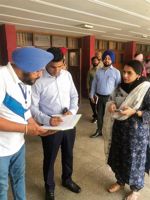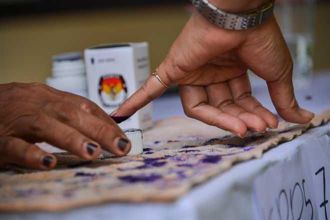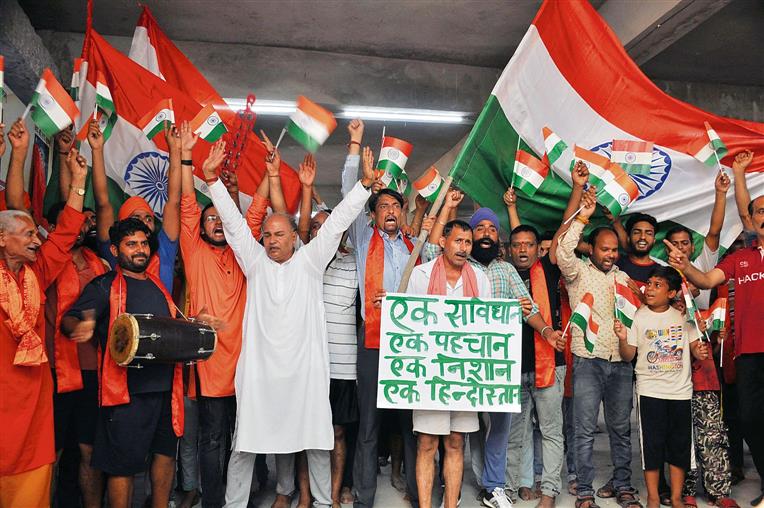
Build trust: The J&K administration should go the extra mile to ensure that all people perceive its actions as well-intended.
Lt Gen VG Patankar (retd)
Former Army Corps Commander, J&K
Ask a cross-section of the people from different regions of Jammu and Kashmir about the historic development that took place on August 5 last year, changing its geography and political status, and you will most likely get a mixed response.
While the reaction of the people in the Kashmir valley was one of shock and disbelief, in Jammu division, it swung between euphoria and confusion. The people of Ladakh were in a celebratory mood, while those in Kargil were apprehensive.
The ordinary people were not sure what it meant and went along with what the more vocal were saying. In the Valley, the sentiment was more strident, along with a feeling of despondency and betrayal.
In the Jammu region, there was wider acceptance of the new reality, but also the lurking fear of a ‘cultural invasion’ from the rest of the country.
The first task for the newly constituted administration of the Union Territory (UT) was to prevent the breakdown of law and order and a likelihood of mayhem. It did so effectively by imposing curfew-like restrictions and ensuring that they were strictly enforced by deploying additional police force that had already been inducted. The situation remained under complete control. Terrorist activities were almost absent.
As people slowly began coming to terms with the changed situation, the rage too began to cool down, though the feeling of humiliation at being reduced to a UT remained. The administration, meanwhile, was able to slowly start unfolding a plan in a graduated manner.
Some impressions created out of hearsay have been found to be without basis. For instance, it was widely believed that an attempt was being made to alter the demography of the UTs and that anyone could now buy land there. Not only was that found to be unsubstantiated, but also, in fact, thousands of legitimate residents who were denied domicile rights earlier were now being given it.
The development package of Rs 80,000 crore announced by the Prime Minister in November 2015 comprised a number of ambitious projects. They were moving at a slow pace till June 2018 when President’s rule was established in J&K. In the past two years, the completed projects have gone up from seven to 17. Projects vital for the improvement of strategic infrastructure have been expedited and are likely to be completed in the next 12-18 months. They include a new tunnel at Banihal and the world’s highest railway bridge over the Chenab river, which when completed by December 2022 will connect Kashmir by rail to the rest of the country. A number of power projects have also been placed on fast track for completion next year.
On the socio-economic front, too, some actions have been initiated. They include the empowerment of panchayats, bringing in greater accountability and austerity in public spending, curbing corruption and restoring gender rights and those of weaker sections of society. Work is also being taken up to develop roads to connect with all villages and to ensure piped water supply to them. Various small and large projects are expected to create a large number of job opportunities throughout the UTs.
The process of repealing of archaic laws and simplifying rules for the issuance of domicile certificates in a time-bound manner have been equally progressive steps taken by the UT authorities. It would help various categories of people, like Kashmiri migrants, refugees from West Pakistan and safai karamcharis, among others.
For better appreciation, the review could be considered in segments. It took nearly three months for both the new entities to establish themselves fully. It is to the credit of the governments at the Centre and the UTs that they appeared to have had a roadmap in place at the very outset which was set into motion by the end of 2019. It was barely in operation for about three months when Covid-19 struck. After March-end this year, the implementation of the plan has been hampered all over the country and the UTs are no exception.
The perspective of the people of the Valley and those from the Jammu area differ. These are not just regional or ethnic differences, but also emotional. Srinagar has historically been the seat of power and the Valley the focal point of political activity of the erstwhile state. Juxtapose that with a sense of ‘special status’ accorded by Articles 370 and 35A and the difference in the emotional state becomes clear. Against such a backdrop, it is easy to understand how the idea of ‘Azadi’ took root in the Valley. Interestingly, even within the Valley, that kind of thought process is largely to be found in the urban or semi-urban areas. In mofussil areas, particularly areas close to the Line of Control (LoC), people are more concerned about their day-to-day problems and less about ‘exclusivity’.
How does the ordinary citizen view the situation? Ordinary people in the Kashmir valley still feel ‘wronged’. Whether that feeling is justified or not, the UT administration should go the extra mile to ensure that all people perceive its actions as well-intended and meant to improve the quality of their lives. Generation of employment by filling thousands of vacancies should be undertaken with complete transparency and urgency.
It will help assuage hurt feelings and build bridges of trust between the government and citizens. The UT administration will also be seen as not being remotely controlled by the Central government. Empowerment of panchayats where the people have the opportunity to participate in governing themselves should receive priority. It will also help build a new generation of political leadership from the grassroots.
A mindset built over the centuries and vitiated by Pakistan over three decades will take longer than a year to change, but a change for the better has certainly begun.
Join Whatsapp Channel of The Tribune for latest updates.






















